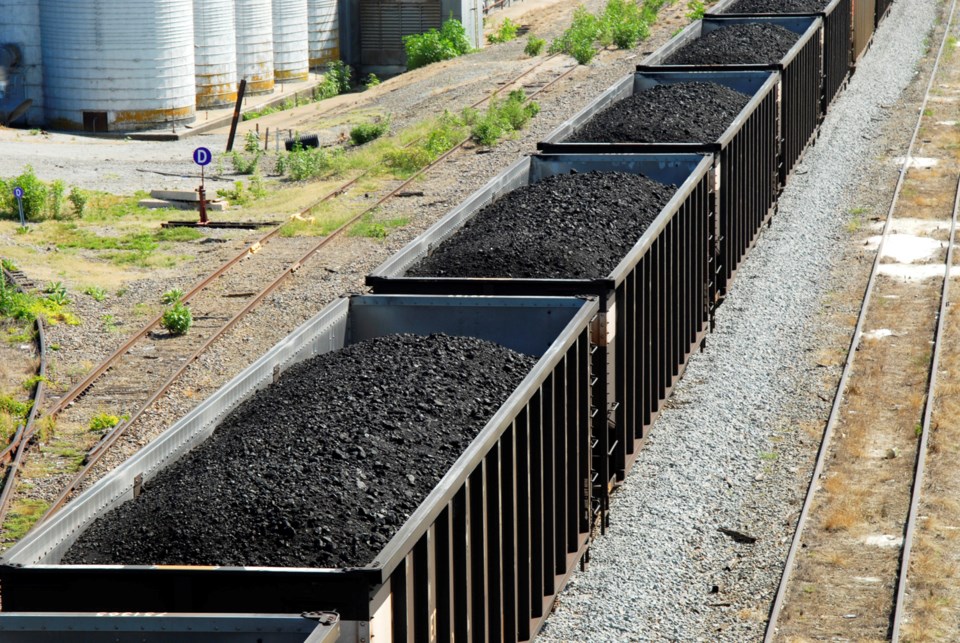A new study out of Washington State University suggests the Fraser Surrey Docks coal terminal expansion project would have a major impact on the health of residents living near the facility.
And local academics say the study underlines the fact that approval of the Fraser Surrey Docks project will inevitably lead to increased levels of known carcinogens in the air – particularly in the neighbourhoods adjacent to the terminal.
“The increases in particles that this study attributed to even current levels of rail traffic were much higher than I would have expected and suggest that the proposed increases in rail traffic will have large impacts on concentrations in areas around rail corridors,” said Professor Michael Brauer of the University of British Columbia’s School of Population and Public Health.
“We have very little data on residential exposure to emissions from rail in general and to coal trains specifically, so this study is important.”
The study conducted by Professor Dan Jaffe and published in Atmospheric Pollution Researchfound that air pollution levels in a Seattle neighbourhood spiked when loaded coal trains passed. The study showed that levels of small particles of airborne pollution from train engines’ diesel exhaust and “larger particles believed to be coal dust” hit levels normally found in heavy industrial areas.
An increase of coal trains along the route “may put these residents over the new U.S. National Ambient Air Quality Standards,” Jaffe wrote in his study.
Some of the particles measured during the study were 30 times more slender than a human hair and could easily penetrate deep inside a person’s respiratory system, causing lung and heart disease.
Brauer said if an air quality study around Fraser Surrey Docks showed levels similar to those found in Seattle by Jaffe, those levels would exceed Canada-Wide Air Quality Standards set to kick in starting 2015. And he said exposure to these kind of airborne particles isn’t just an annoyance – it’s potentially deadly.
“Exposure to particulate air pollution is much more than a nuisance – it is strongly linked to increased deaths and reduced life expectancy and is recognized by the WHO (World Health Organization) as a cause of lung cancer,” Brauer said.
Jaffe’s study has renewed calls from opponents to the FSD coal project for the health ministry to step in and require an independent analysis of the health risks posed by the proposed expansion.
“Health Minister Terry Lake and Environment Minister Mary Polak need to step up to the plate – frankly, they are not doing their job to protect the health interests of the public,” said New Westminster Environmental Partners spokesman Andrew Murray.
“I can’t understand why Port Metro Vancouver continues to try to bypass the health authorities. They’ve done everything they can to avoid going through an independent health impact study.”
Last month, Port Metro Vancouver, the federal authority responsible for approving the proposal, requested Fraser Surrey Docks provide more information on the impacts on human health posed by the project. Port Metro wants more information on, among other things “impacts of coal dust and diesel emissions, particularly how they impact vulnerable populations like children, seniors and people with respiratory issues.”
Port Metro expects the additional material will take “a few months” to assemble and submit.
But Kevin Washbrook of Voters Taking Action on Climate Change said the public will have no chance to comment on the new information being assembled by Fraser Surrey Docks.
“I would be surprised if they show it’s anything but safe, and without independent oversight and transparency, I wouldn’t trust the results,” he said. “It’s arrogant for them to say ‘We know better, trust us.’”
And Washbrook said there’s no such thing as a “safe” level of coal dust or diesel fume particulate.
“There is no safe level. With diesel fumes and coal dust, even the lowest levels have risk. What they’re saying is, ‘We know the risk, we will determine if it’s acceptable.’”
Fraser Surrey Docks could not be reached for comment at presstime.



